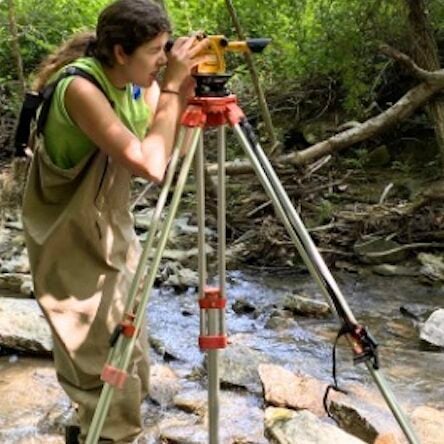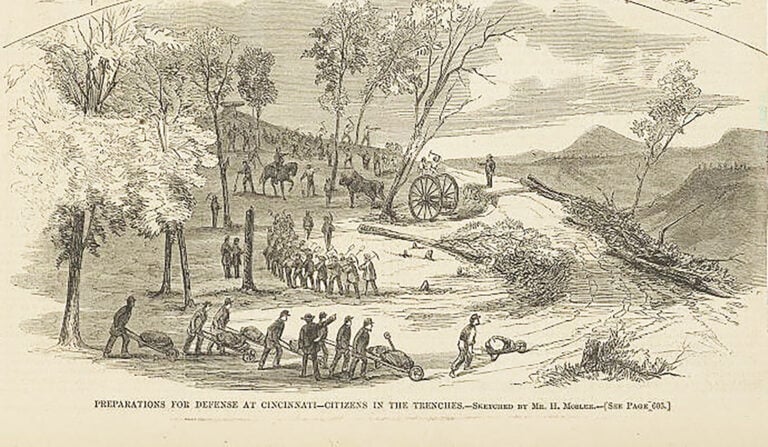By Howard Whiteman
Special to NKyTribune
As I popped over the hill in my truck, maybe driving just a bit too fast, I had to swerve to miss the large, rounded rock sitting in the road. Except it wasn’t a rock, and my brain recognized the shape on second glance. Snapper, and a big one.
I hit the brakes and pulled safely to the side of the road, hazard lights flashing, then went over to inspect the turtle. It was obvious that someone had run her over. She was still alive, because snapping turtles have a will to live like no other species that I know. Based on the damage to the shell, however, she was not going to make it, no matter what I did.

Given the time of year (about now), I knew what was going on. She was crossing the road to find a good burrowing spot for her eggs, which were almost certainly inside of her. I carefully picked the turtle up and put her in the back of the truck and turned around to go home, hoping I could save the young developing inside of her.
A few texts to a student that just happened to have saved unhatched turtles for years gave me all the information I needed to make things work (it’s online of course). I put the female out of her misery, dissected the eggs out, put them in a moist, warm, closed environment of vermiculite, and waited. About 80 days later, I started checking on them, and soon afterward they began hatching. Eventually, after the baby snappers were all hatched and my kids had spent a day or so enjoying them, we took them to a nearby lake for a release party, and off they went.
Some almost certainly ended up in the mouth of a largemouth bass, gar, snake, or another snapper. But I’d like to think that some of them are still out there, today, and a lot bigger. They would be in their late teens by now, not old by snapper standards; more middle-aged.
Hopefully some of them will outlive me, and you.
Not everyone wants to put in all the work to save some young turtles, but we can all do something that keeps anyone from having to even try: hitting the brakes.
This time of year, female turtles are crossing roads more frequently as they look for places to lay their eggs. In the past many of these turtles would never have had to cross a highway, but human development has placed more and more roads next to the rivers, ponds and lakes that turtles live in. Given that, it is our responsibility to ensure they make it across safely.
Watch for turtles crossing the road, and slow down when you go around them. You don’t have to stop and help them across, although some do. If you do that, carefully help them across the road in the direction they were moving.
Other, less helpful folks somehow enjoy running over turtles, snakes, and other reptiles that are trying to navigate the human road matrix. How anyone can gain pleasure over the gruesome death of another animal—one that might be decades older than you are—is beyond me.
If you know a person like this, spend some time and talk to them about turtles. Help them appreciate the amazing animals that they are, and perhaps you will have saved a bunch of young hatchlings without ever having to rear them.
Turtles and other reptiles need our help right now because like a lot of other animals on our planet, they are being hit from all sides, and not just on our roads.
Reptiles are overexploited as food, pets, and other products in many parts of the world, and are becoming more affected by habitat loss, pollution, disease, and climate change.
Box turtles are being hit especially hard in recent years. Both females and males are moving right now, often on cool mornings and after a rain. Not only are box turtles susceptible to vehicles, but they have been illegally harvested by folks who sell them to exporters for the pet trade and as food. Some people even use trained dogs to find and retrieve box turtles for them. Box turtles are also used in turtle races which can lead to overheating and disorientation since some of these turtles are released in areas far from their homes. Turtle races may seem like harmless family fun, but they are not harmless for the turtles, which can easily become stressed out by these events.
We can all be better stewards of the planet, and sometimes doing so is not just a reflection of what we do but what we don’t do. You don’t have to rear turtle hatchlings to save them, you just have to slow down and swerve around turtles when you see them on the road. Likewise, you don’t have to stop the international illegal pet trade, but you can refrain from collecting turtles yourself as pets or participating in turtle races. If everyone did their part, turtles and the planet we share with them would both be better off.
Howard Whiteman holds the Commonwealth Endowed Chair of Environmental Studies at Murray State University where he is director of the Watershed Studies Institute and a professor in the department of Biological Sciences.

















